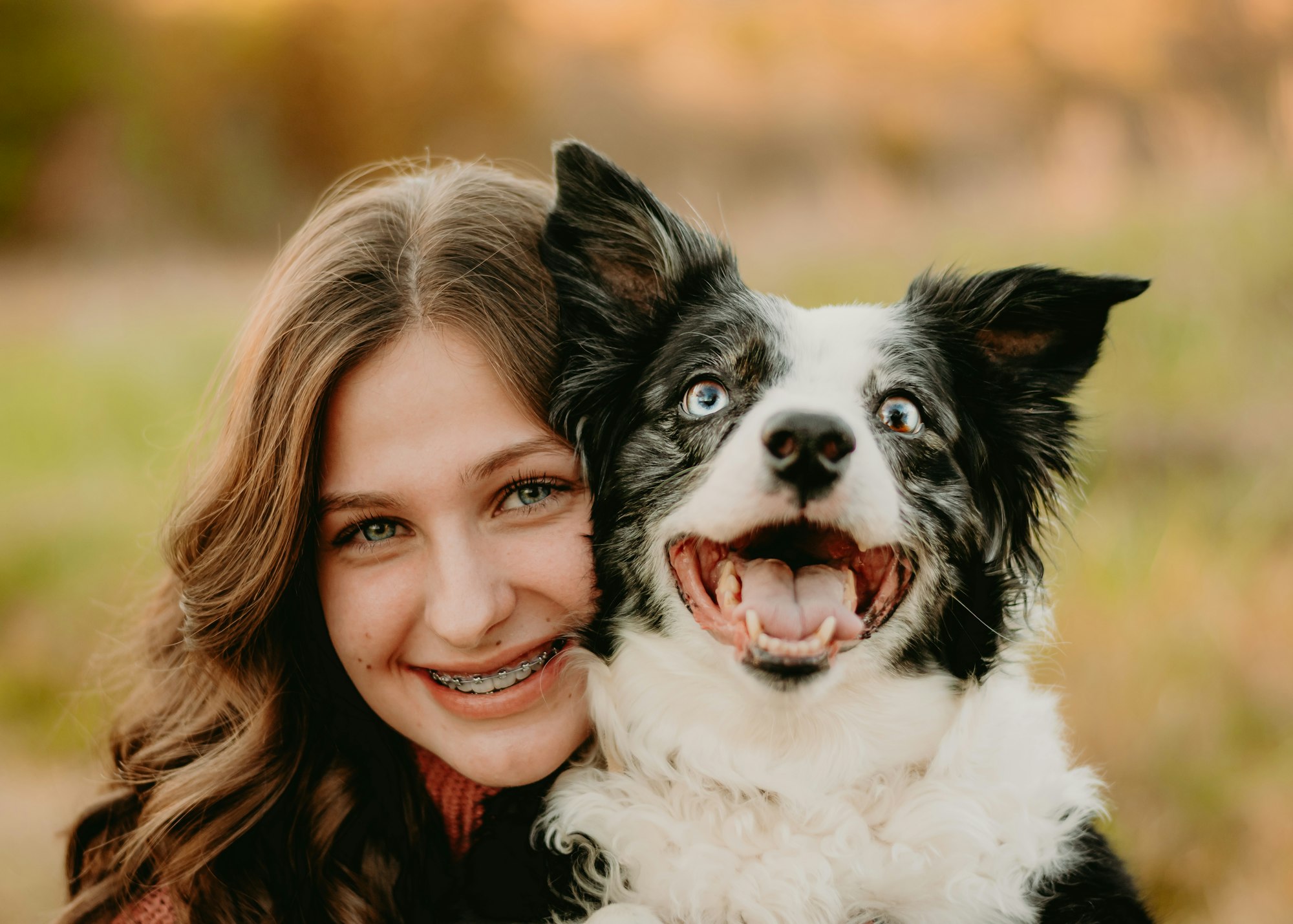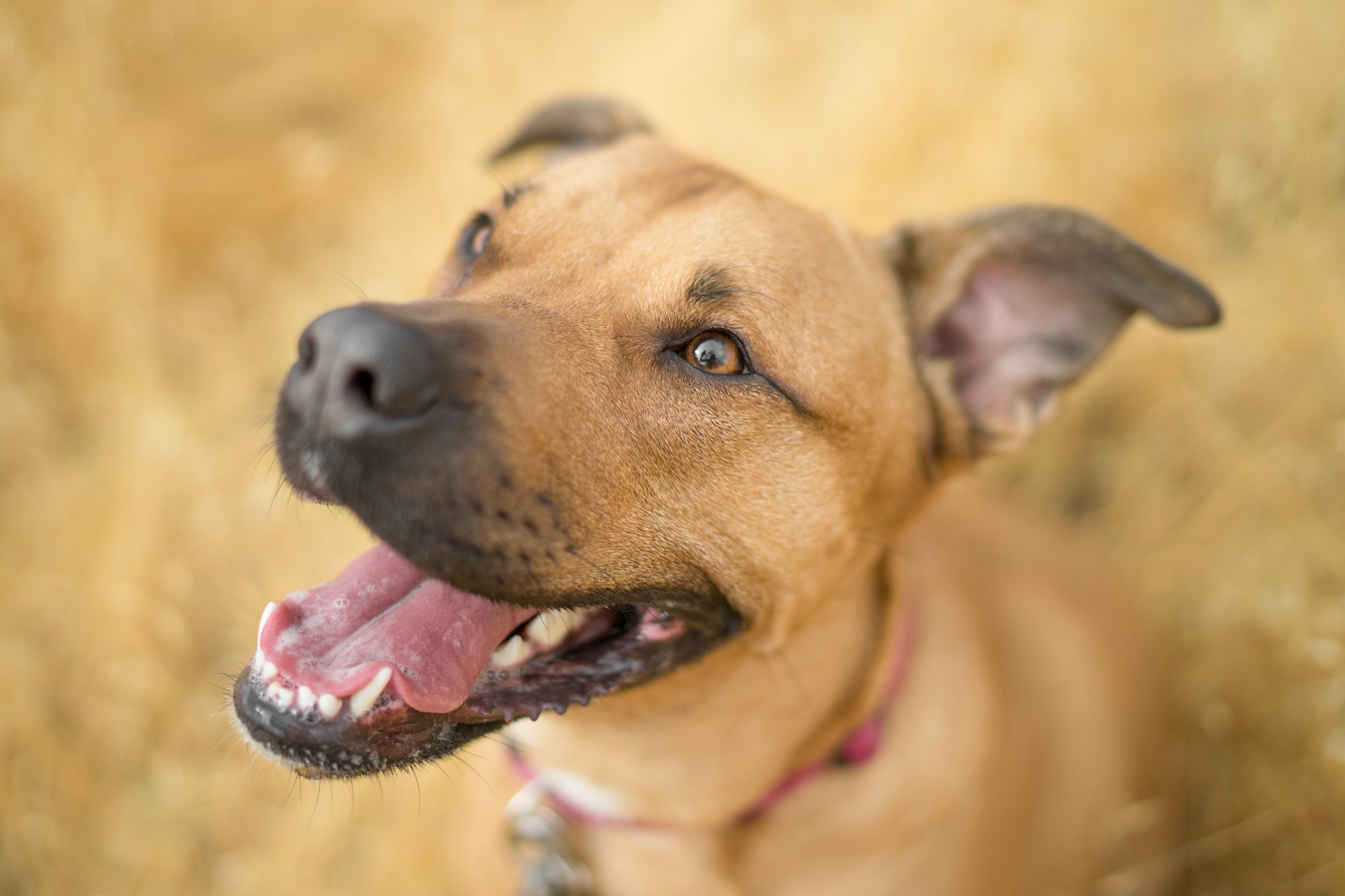Have you ever wondered about your furry friend's pearly whites? Yes, that adorable yawn revealing a set of teeth or that playful nip which prompts an immediate thought - how many teeth do dogs actually have? Well, it's time to decode doggy dentition and dive into the fascinating world of canine teeth!
The Basics of Dog Teeth
When a puppy is born, they're toothless - as smooth as a squeaky toy. But, before you know it, they start growing their deciduous or "baby" teeth. By the age of 8 weeks, most puppies have a full set of baby teeth, totaling 28.
But here's where it gets intriguing. Just like humans transition from baby teeth to permanent teeth, so do dogs. When they reach adulthood, their full set increases to an impressive 42 teeth!
Decoding Doggy Dentition: How Many Teeth Do They Have? Indeed, from those cute nibbles to serious bites, it’s a whopping 42 teeth behind every bark.
Canine Teeth and Their Roles
Now, let's break down these 42 teeth and their purposes:
- Incisors: The small teeth at the front of the mouth, are perfect for nibbling and grooming.
- Canines: The long, pointy teeth next to the incisors, responsible for tearing meat.
- Premolars: Located just behind the canines, they're for shearing and tearing food.
- Molars: These are at the back of the mouth and play a pivotal role in grinding down food.
Each type of tooth has a unique function that contributes to a dog's overall health and survival.
The Journey from Puppy Teeth to Adult Teeth
Our furry pals experience a teething process that can be both uncomfortable and, at times, mischievous. Picture this: You come home to find your favorite pair of shoes transformed into a gnawed mess. Why? Blame it on the teething phase.
By the time a dog is about six months old, the deciduous teeth start falling out, making way for adult teeth. By the age of seven months, most dogs will have their complete set of permanent teeth. This transition, while necessary, can be a period of discomfort for the puppy, prompting them to chew more. Hence, it's crucial to provide them with safe chew toys to ease their discomfort.
Dental Care: Not Just for Humans
Given our topic, I'd be remiss not to mention dental care. The condition of a dog's teeth can indicate its overall health. Neglected teeth can lead to tooth decay, bad breath, and even serious health issues. So, what should one do?
- Regularly brush your dog's teeth.
- Provide dental chew toys.
- Schedule regular vet check-ups.
And speaking of dog health, have you ever wondered, "Can dogs eat ginger?" Well, in moderation, ginger can be beneficial for dogs. Similarly, there are safe essential oils for dogs which can provide therapeutic benefits. But always consult with a vet before introducing any new substance into your dog's diet or routine.
Also, while on the topic of unique canine features, have you ever noticed cane corso ears? Their unique shape is quite distinctive! Moreover, there are several breeds of short legged dogs which have become quite popular among pet enthusiasts. However, irrespective of the breed, it's crucial to be observant. Conditions like hyperkeratosis in dogs paws need attention, and understanding whether dogs eat peppers can save a trip to the vet!
Beyond the Bite: The Significance of Doggy Dentition
Now that we have a firm grasp on the number and types of teeth dogs possess, let's delve a bit deeper into why this knowledge is crucial for dog owners.
The Emotional Signals Behind Those Teeth
Just as humans use facial expressions to communicate, dogs too employ their teeth in various ways to convey emotions.
- The Playful Grin: If your dog shows its teeth but wags its tail excitedly and seems relaxed, it's probably just in a playful mood. They're inviting you to join in on the fun!
- The Warning Snarl: This expression is often accompanied by raised fur, flattened ears, and a growl. It's a dog's way of saying they're feeling threatened and is their last resort before possibly snapping.
Recognizing these signals can aid in avoiding potential conflicts and understanding your dog's emotions better.

Teeth Tell Tales of Health
The state of a dog’s teeth can often serve as a window into their overall health. Plaque, tartar, or swollen gums aren't just oral issues; they can be indicative of more significant systemic health problems. A dental issue might be a symptom of another underlying condition or can lead to issues in the heart, liver, or kidney if bacteria enter the bloodstream.
The Peculiarities of Breed-Specific Teeth
Dog breeds are incredibly varied, and so are their teeth. For example, the brachycephalic breeds, like Bulldogs and Pugs, with their squished faces, often have overcrowded mouths, leading to unique dental challenges.
On the flip side, breeds with larger jaws, like the German Shepherd or Golden Retriever, might have more space, but they're also prone to specific dental issues due to the nature of their bite.
Doggy Dental Anomalies
Just as humans might have a misaligned tooth or an overbite, dogs too can have dental anomalies. One such quirk might be having extra teeth! While this might sound like an evolutionary jackpot, it can cause overcrowding and discomfort.
Similarly, some dogs, especially the smaller breeds or those with short muzzles, can retain their baby teeth even after their adult teeth come in. This can lead to a dual layer of teeth, a phenomenon aptly called "shark teeth."
A Deep Dive into Canine Oral Health
Now that we've unraveled the intricacies of canine dentition, let's dive a little deeper into the realm of dog dental health. It’s more than just about having a set of sparkling teeth. It’s about overall wellness, comfort, and longevity.
Decoding Doggy Dental Diseases
Like humans, dogs are susceptible to various dental ailments. Recognizing the symptoms early can prevent long-term issues.
- Periodontal Disease: One of the most common dental problems in dogs, it begins when bacteria turn into plaque on the tooth's surface. If untreated, this can lead to gum diseases, tooth loss, and even organ damage.
- Broken Teeth: Dogs are natural chewers. Whether it's a bone, a toy, or sometimes something they shouldn’t be gnawing on (like a rock or a hard piece of plastic), broken teeth can occur. Such injuries can be painful and, if ignored, can become infected.
The Dog Diet: More Than Just Kibble
While many believe that dry food automatically cleans a dog’s teeth, it’s not entirely true. Some specially formulated kibbles can reduce tartar build-up, but a regular kibble doesn’t do the job entirely.

Moreover, diet plays a significant role in dental health. Foods rich in calcium and phosphorus are crucial for maintaining strong teeth. And while we're on the topic of food, it's interesting to note that some natural treats, like carrots, can act as a natural toothbrush, scraping off soft plaque from the teeth.
The Importance of Regular Check-ups
It's essential to not wait until you see an issue. Regular check-ups at the vet ensure that any budding dental problems are nipped in the bud. Vets can spot issues we might overlook, like the beginning of gum disease or a cracked tooth.
Canine Dental Hygiene at Home
While it might seem daunting, brushing your dog's teeth can become a bonding activity. Numerous dog-friendly toothpaste flavors are available, from chicken to beef, ensuring that your puppy sees this activity as a treat rather than a chore. Dental wipes and water additives also serve as excellent supplements to brushing.
But remember, while dental treats and toys can assist in cleaning, they're not a replacement for regular brushing. Also, always keep an eye out when your dog is enjoying a chew toy or treat. The last thing you'd want is a choking hazard or a broken tooth.
The Interconnectedness of Canine Health
While this article focuses on Decoding Doggy Dentition, it's essential to understand that a dog's oral health doesn't exist in isolation. A problem in their mouth can be indicative of issues elsewhere. For instance, if a dog refuses to eat, it might not be because of their mood but perhaps a painful tooth or gum.
Similarly, did you know that certain conditions like hyperkeratosis in dogs paws can sometimes correlate with oral health issues? It's all interconnected!
Harnessing Technology: FI Dog Collars and Canine Dental Health
If you're a dedicated pet owner, you're constantly looking for ways to optimize your dog's well-being. From their dental health, as we've extensively covered, to their physical activity, every aspect matters. Here's where the FI dog collars come into play, bridging the gap between technology and pet care.
Decoding Activity Levels with FI Dog Collars
Just as a keen observation of your dog's teeth provides insights into their overall health, tracking their physical activity can offer valuable information about their well-being. The FI dog collar, known for its cutting-edge technology, allows you to monitor your dog's daily activity levels.
Why does this matter? Well, imagine your usually active dog suddenly becoming lethargic. While it could be due to many reasons, one of them could be dental discomfort. A dog in pain, perhaps from a broken tooth or gum disease, might reduce its usual activity. The FI collar can alert you to such sudden changes in behavior, prompting a quicker response and a potential dental check-up.
Integrating Wellness: Diet, Exercise, and Dental Care
The importance of a balanced diet for dental health can't be stressed enough. Similarly, regular exercise ensures optimal blood circulation, including to the gums, ensuring healthier teeth. With FI dog collars, you can ensure your dog gets the right exercise. Too little, and you risk obesity and related health issues. Too much, and you might be wearing out your canine buddy.

Also, think of those times when your dog sneaks off to nibble on something they shouldn't, maybe a hard object that could damage their teeth. The FI collar's location tracking can be a game-changer in such scenarios. You can intervene before a dental mishap occurs by keeping tabs on where your dog's been.
Bridging Behavioral Understanding with FI
Earlier, we discussed understanding the emotional signals behind your dog's teeth showings, like playful grins or warning snarls. The FI collar can complement this by providing data on your dog's rest patterns and barking frequency. Analyzing this information in tandem gives you a holistic view of your dog's emotional state.
For instance, if your dog is barking more than usual and also showing warning snarls, it could be an indication of discomfort, maybe due to a dental issue or even conditions like hyperkeratosis in dogs paws. It's all about connecting the dots!
Conclusion:
In the vast realm of canine well-being, understanding and Decoding Doggy Dentition is pivotal. From identifying the 42 teeth they possess, and interpreting their emotional signals, to realizing the significance of their dental health for systemic wellness, every facet is crucial. Breed-specific dental traits and common dental anomalies further emphasize the need for proactive oral care.
Pairing this dental knowledge with the revolutionary FI dog collar magnifies our grasp on their overall health. By monitoring their activity levels and behavior, and correlating potential dental issues with changes in their patterns, we create a comprehensive care approach for our furry companions, ensuring their happiness from tooth to tail.